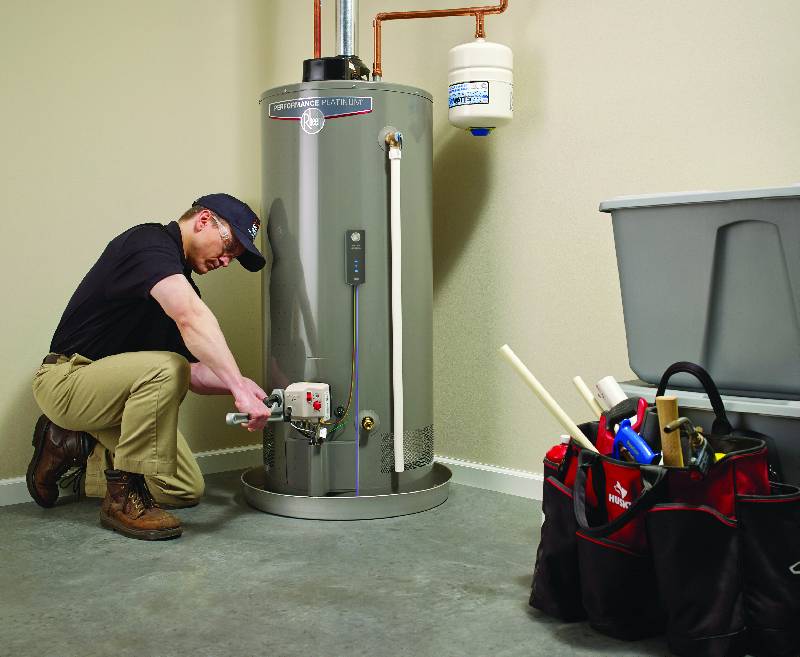Analyzing Heater Complications
Analyzing Heater Complications
Blog Article
We've discovered this article on Common Problems with Tank Water Heaters directly below on the net and decided it made perfect sense to discuss it with you on this page.

Imagine starting your day without your routine warm shower. That already sets a poor tone for the rest of your day.
Every house needs a trustworthy water heater, however just a couple of know exactly how to manage one. One simple way to keep your water heater in top form is to check for faults on a regular basis as well as repair them as quickly as they appear.
Remember to turn off your water heater prior to smelling about for mistakes. These are the water heater faults you are most likely to come across.
Water too hot or too cold
Every hot water heater has a thermostat that establishes just how warm the water gets. If the water entering into your house is as well hot despite establishing a convenient maximum temperature level, your thermostat could be faulty.
On the other hand, also cold water may be due to a failed thermostat, a broken circuit, or improper gas flow. As an example, if you use a gas water heater with a damaged pilot burner, you would get cold water, even if the thermostat is in ideal problem. For electrical heating units, a blown fuse might be the culprit.
Not nearly enough warm water
Hot water heater can be found in many dimensions, relying on your hot water demands. If you lack warm water before every person has had a bath, your hot water heater is as well tiny for your family size. You must take into consideration installing a bigger water heater tank or going with a tankless hot water heater, which takes up less area and is more durable.
Strange noises
There are at the very least 5 type of sounds you can speak with a water heater, but the most usual interpretation is that it's time for the hot water heater to retire.
Firstly, you need to know with the normal appears a hot water heater makes. An electric heater might appear various from a gas-powered one.
Standing out or banging audios generally imply there is a slab of debris in your storage tanks, and it's time to cleanse it out. On the other hand, whistling or hissing sounds may simply be your valves letting some stress off.
Water leakages
Leaks could originate from pipes, water connections, valves, or in the worst-case situation, the storage tank itself. Gradually, water will certainly rust the tank, as well as locate its way out. If this happens, you require to change your hot water heater immediately.
Nevertheless, before your modification your entire container, be sure that all pipelines remain in place and that each shutoff works flawlessly. If you still require assistance recognizing a leak, call your plumber.
Rust-colored water
Rust-colored water means one of your water heater elements is corroded. It could be the anode pole, or the storage tank itself. Your plumber will be able to determine which it is.
Warm water
Despite exactly how high you established the thermostat, you won't get any kind of warm water out of a heating unit well past its prime. A hot water heater's effectiveness may minimize with time.
You will certainly also obtain warm water if your pipelines have a cross connection. This means that when you activate a tap, hot water from the heating unit moves in together with normal, cold water. A cross link is very easy to area. If your warm water faucets still pursue closing the water heater shutoffs, you have a cross link.
Discoloured Water
Corrosion is a significant source of unclean or discoloured water. Corrosion within the water storage tank or a stopping working anode pole could trigger this discolouration. The anode rod secures the storage tank from rusting on the within as well as must be checked annual. Without a pole or an appropriately functioning anode rod, the warm water swiftly corrodes inside the storage tank. Contact a professional water heater specialist to identify if replacing the anode pole will deal with the trouble; if not, replace your hot water heater.
Final thought
Preferably, your water heater can last ten years before you need a modification. However, after the 10-year mark, you might experience any of these mistakes extra on a regular basis. Now, you ought to include a new water heater to your spending plan.
How To Troubleshoot 3 Common Water Heater Problems in Twin Cities
The Water Heater Is Leaking
A leaky cold water inlet valve A loose pipe fitting A leaky temperature and pressure relief valve A corroded anode rod A cracked tank Turn Off Your Water Heater:
Shut off your gas water heater by turning the gas valve on the unit to the “OFF” position. Shut off your electric water by switching its power off at your electrical panel. Look for a two-pole breaker labeled “water heater” and turn it to the “OFF” position. Move the ball valve connected to the water heater to be perpendicular to the piping at a 90° angle. Look for the Leak:
Depending on whether the water is coming from the tank's top or bottom, you’ll want to look for the leak in different locations.
If the leak comes from the top of the tank, carefully look for water escaping from the cold water inlet valve or loose pipe fittings. Rusted hot and cold water valves can have loose connections with the tank, with water leaking out of them.
https://mspplumbingheatingair.com/blog/how-to-troubleshoot-3-common-water-heater-problems
As a keen person who reads on Water Heaters Problems, I figured sharing that section was worth the trouble. Enjoyed our blog posting? Please share it. Help another person check it out. Kudos for your time. Visit us again soon.
Results guaranteed, contact! Report this page